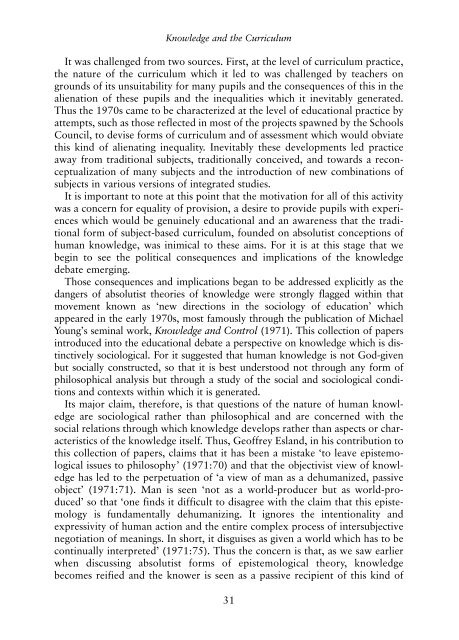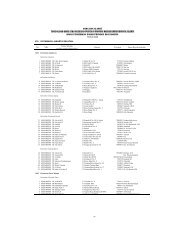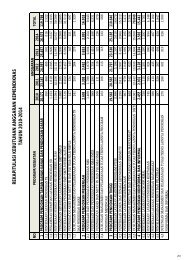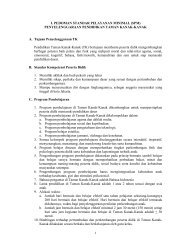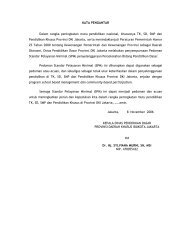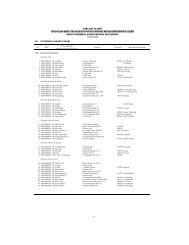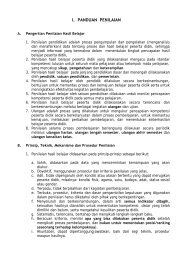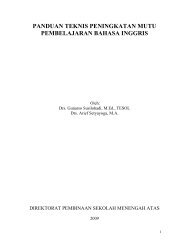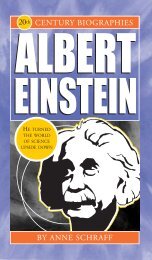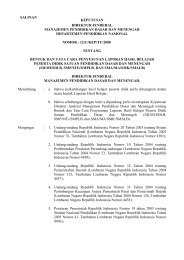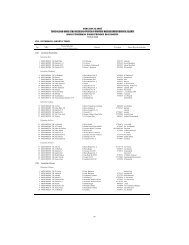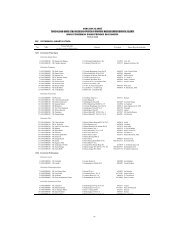The Curriculum - WordPress.com
The Curriculum - WordPress.com
The Curriculum - WordPress.com
You also want an ePaper? Increase the reach of your titles
YUMPU automatically turns print PDFs into web optimized ePapers that Google loves.
Knowledge and the <strong>Curriculum</strong>It was challenged from two sources. First, at the level of curriculum practice,the nature of the curriculum which it led to was challenged by teachers ongrounds of its unsuitability for many pupils and the consequences of this in thealienation of these pupils and the inequalities which it inevitably generated.Thus the 1970s came to be characterized at the level of educational practice byattempts, such as those reflected in most of the projects spawned by the SchoolsCouncil, to devise forms of curriculum and of assessment which would obviatethis kind of alienating inequality. Inevitably these developments led practiceaway from traditional subjects, traditionally conceived, and towards a reconceptualizationof many subjects and the introduction of new <strong>com</strong>binations ofsubjects in various versions of integrated studies.It is important to note at this point that the motivation for all of this activitywas a concern for equality of provision, a desire to provide pupils with experienceswhich would be genuinely educational and an awareness that the traditionalform of subject-based curriculum, founded on absolutist conceptions ofhuman knowledge, was inimical to these aims. For it is at this stage that webegin to see the political consequences and implications of the knowledgedebate emerging.Those consequences and implications began to be addressed explicitly as thedangers of absolutist theories of knowledge were strongly flagged within thatmovement known as ‘new directions in the sociology of education’ whichappeared in the early 1970s, most famously through the publication of MichaelYoung’s seminal work, Knowledge and Control (1971). This collection of papersintroduced into the educational debate a perspective on knowledge which is distinctivelysociological. For it suggested that human knowledge is not God-givenbut socially constructed, so that it is best understood not through any form ofphilosophical analysis but through a study of the social and sociological conditionsand contexts within which it is generated.Its major claim, therefore, is that questions of the nature of human knowledgeare sociological rather than philosophical and are concerned with thesocial relations through which knowledge develops rather than aspects or characteristicsof the knowledge itself. Thus, Geoffrey Esland, in his contribution tothis collection of papers, claims that it has been a mistake ‘to leave epistemologicalissues to philosophy’ (1971:70) and that the objectivist view of knowledgehas led to the perpetuation of ‘a view of man as a dehumanized, passiveobject’ (1971:71). Man is seen ‘not as a world-producer but as world-produced’so that ‘one finds it difficult to disagree with the claim that this epistemologyis fundamentally dehumanizing. It ignores the intentionality andexpressivity of human action and the entire <strong>com</strong>plex process of intersubjectivenegotiation of meanings. In short, it disguises as given a world which has to becontinually interpreted’ (1971:75). Thus the concern is that, as we saw earlierwhen discussing absolutist forms of epistemological theory, knowledgebe<strong>com</strong>es reified and the knower is seen as a passive recipient of this kind of31


